Visiting scholars
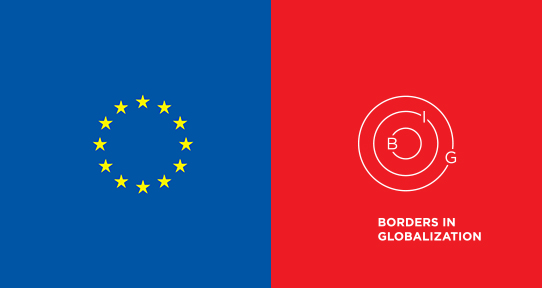
Visiting Scholars
The European Union Centre for Excellence has two visiting scholars opportunities. The first is a fellowship for EU scholars working on border research at the Centre for Global Studies (CFGS), and is supported the CFGS, the EUCE, and the Borders in Globalization SSHRC Partnership Grant (BIG).
The second is a Visiting Scholar who comes to UVic to teach an EU-content course in the Political Science or Economics department, who also receives a stipend from the EUCE. The Visiting Scholar fellowship seeks to attract outstanding EU scholars to Victoria for a summer semester to both teach a course from a European perspective and contribute to the EUCE community at UVic.
2016 Visiting Scholars
Dr. Assem Dandashly - Department of Political Science
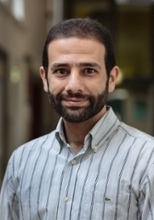 |
Assem Dandashly is an Assistant Professor at the Department of Political Science at Maastricht University, the Netherlands. Prior to joining Maastricht University in September 2012, Assem was a Research Fellow at the Kolleg-Forschergruppe “The Transformative Power of Europe” Freie Universität Berlin. Assem holds a PhD in Political Science (2012) from the University of Victoria, BC Canada. Assem’s research focuses on the Euro and Central and East European Countries in addition to the EU external relations and democratization in the |
Middle East and North Africa. Assem’s research appeared in several refereed journals and book chapters.
This summer, Assem will be teaching two courses:
POLI 211: EUROPEAN INTEGRATION AND THE EUROPEAN UNION
Dates: May 9 to June 24
CRN: 31208
Days: MW 12:30-14:50
This course offers an introduction to the study of the European integration process and the basic structures and processes of the European Union, including an examination of selected policies.
POLI 414 : POLITICS IN THE EU: EU AND THE WORLD (SEMINAR)
Dates: July 4 to August 19
CRN: 31272
Days: MW 12:30-14:50
This course focuses on the external relations of the European Union (EU) with special focus on contemporary security challenges facing Europe – and on how the EU and Europe’s main powers are adapting to such challenges. The course aims to provide an understanding of the EU as an actor in the foreign, security and defense policy fields. The course will examine the institutions of EU foreign and security policy; the future of the transatlantic relationship; regional challenges such as engaging the Middle East and engaging Russia; and tackling new security challenges, including climate change, energy and migration. The aim of the course is to give students a thorough overview of contemporary security issues and the ability of European security institutions to address them.
Dr. Richard Griffiths - Department of History
 |
Richard Griffiths is Emeritus professor of Economic and Social History and of International Studies at Leiden University (The Netherlands). While in Leiden, he created the MA programme in European union Studies and the BA in International Studies. Before then he was professor of contemporary history at the European University Institute , Florence where he directed the history of European integration programme (1987-1995). Earlier in his career, he taught at the University of Manchester and held the chair in Economic History at the Free |
University, Amsterdam. Before then, he vaguely recalls studying at University College, Swansea and obtaining his PhD from Cambridge University. He has written widely on the origins and development of European integration and on wider issues of economic development.
He is a passionate rugby fan (London Welsh and Wales) and to a lesser extent of football (Fiorentina). He enjoys travelling and teaching and is passionate (to the extent of being a bit boring at times) on the subject of blended learning and MOOCs. He is currently in the process of redesigning and relaunching a series on MOOCs culminating in a capstone, entitled Configuring the World which (coincidentally) is also the title of his most recent book. At the moment he is writing a new history of European integration and a book on the ‘new silk road’ policy launched by China in September/October 2013.
This summer, Dr. Griffiths will be teaching HIST 340: HISTORY OF EUROPEAN INTEGRATION, 1945-2015
Dates: May 9 to June 1
CRN: 31303
Days: MTWThF 10:30-12:20
Dr. Benjamin Muller - CFGS
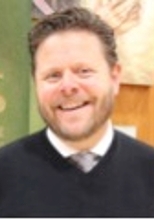 |
Since obtaining his PhD from Queen’s University Belfast, Northern Ireland, Dr. Muller has published widely in books and academic journals on issues of borders, sovereignty, security, technology, and identity, including two monographs: Security, Risk, and the Biometric State: Governing Borders and Bodies (Routledge 2010); and, with Samer Abboud, Rethinking Hizballah: Legitimacy, Authority, Violence (Ashgate 2012). Reflecting his interdisciplinary research agenda, Dr. Muller has published numerous articles in journals such as, |
Citizenship Studies, Security Dialogue, International Political Sociology, Geopolitics, and Borderlands. Dr. Muller has provided expert testimony to a number of Canadian Parliamentary committees, contributed to NATO/European Science Foundation reports on ethics and security, and held visiting research fellowships at the Border Policy Research Institute at Western Washington University (2008) and the Confluencenter for Creative Inquiry at the University of Arizona (2014-2015). Dr. Muller has both taught and given guest lectures at more than a dozen Universities and Colleges in Canada and the US, as well as participated in community stakeholder initiatives on borders, security, technology, and ethics, in Canada, the US, and Europe. Dr. Muller has served as the President of the International Studies Association (Canada Region 2015-2016), and was a Member of the Board of Directors for the Association for Borderlands Studies. Dr. Muller currently serves as the Chair of the King’s University College Faculty Association, and he teaches Critical Security Studies and Border Studies at King’s, an affiliate college with Western University in London, Ontario.
As EU-Border Fellow in CFGS (2016), Dr. Muller will be focusing on two projects. One, as editor of the text, Ferocious Architecture: Sovereign Spaces/Places, Limits, Senses (Rowman & Littlefield, under contract). And Secondly, the paper “Minutemen” in Hungary: Vigilantism, Migrants and Border (In)Security at the Limits of Fortress Europe.
Website: http://www.biometricstate.com
Email: bmuller@uwo.ca
Dr. Pompeo Della Posta - Department of Economics
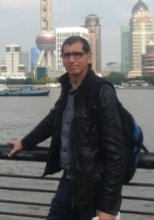 |
Pompeo Della Posta holds a PhD in Economics (European University Institute, Italy) and an MA in Economics (University of Warwick, UK). He has visited Princeton University (USA) and Stanford University (USA). He was awarded a Fullbright Scholarship and a Scholarship of the Ente Einaudi. He did a 3 months stage at the European Commission (Fiscal Policy Division). He is tenured associate professor at the University of Pisa. He has taught courses and seminars in various Universities across the world, including George Washington |
University (Washington, DC, USA), CIRANO research center (Montreal, Canada), Johns Hopkins SAIS center (Bologna center, Italy), Stanford University (Florence center, Italy), University of Victoria (Canada), Beijing Normal University (China), Yokohama University (Japan), Delhi School of Economics (New Delhi, India), Durham University (UK). He has published in international journals (a forthcoming paper is in the special issue of the Journal of Policy Modeling, June 2016) and edited several books, including two books published by Palgrave Macmillan. He has acted as referee for several international journals, and has been a Member of the Board of Directors of the International Trade and Finance Association since 2011.
In the past he has coordinated the Master in Finance of the University of Pisa. In addition, he has taught courses at both undergraduate and graduate levels, including Masters in Economics, PhD in Economics, Masters in Business Administration, Master in Finance. He has taught courses on many different topics, including European Economics, The Economics of Globalization, Macroeconomics, Microeconomics, International Trade, International Monetary Economics, International Economics, Monetary Economics, Development Economics, Development Finance, Game Theory.
This summer, Pompeo will be teaching ECON 422: ISSUES IN EUROPEAN INTEGRATON
Dates: July 4 to August 19
CRN: 31258
Days: TWF 10:30-12:20pm
The course will explore the process of economic and monetary integration in Europe and in particular the historical reasons behind the creation of the EEC in 1957. Such reasons had to do mainly with the need to avoid new wars in the European continent, to protect against the possible influence of Soviet Union and of communism, and to design a more significant role for the European countries in the world arena. The current institutional setup of the European Union will then be analyzed, by focusing on the “big five” European institutions (European Council, Council of Ministers, European Commission, European Parliament, European Court of Justice) and on the other relevant ones, including the European Central Bank which has played a central role in the management of the euro area crisis. The microeconomic aspects of the process of European economic integration as a special case of a preferential trade agreement will then be studied. After that the course will address the process of monetary integration, starting from the European Monetary System, and proceeding with the Maastricht Treaty and the adoption of the euro. Inevitably, after describing the main features of the global financial crisis that started in 2007/2008, the course will also address the past (and current…?) euro area crisis, to understand its motivations, and its possible ways of resolution.
Kate Tennis - CFGS
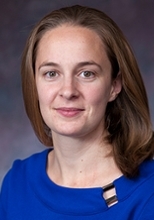 |
Kate Tennis is a PhD Candidate in International Relations at American University in Washington DC and a EU-Borders Visiting Researcher at the Centre for Global Studies at the University of Victoria. Her research focuses on global South-North migration, border control, and security. Her dissertation research explores the politics of border control externalization from the perspective of migrant sending and transit states, with a particular emphasis on Caribbean and Mediterranean border control and interdiction initiatives.
|
Past EU-Borders visiting scholars
Dr. David Moffette - Summer 2015
 |
David Moffette is a SSHRC postdoctoral fellow at the Department of Sociology and Anthropology at Carleton University and a EU-Borders Visiting Researcher at the Centre for Global Studies. He holds a Ph.D. in sociology from York University and will be joining the Department of Criminology at the University of Ottawa as an assistant professor in January. His doctoral dissertation, for which he received the Governor General’s Academic Gold Medal, looks at the logics and practices that have informed Spanish immigration and border policies since the |
Jonathan Zaragoza Cristiani - Summer 2015
 |
Jonathan Zaragoza Cristiani is a PhD candidate in the Department of Social and Political Sciences at the European University Institute in Florence. He holds an M.A in Political Science from the European University Institute and a Licenciatura and an MA in Political Science from the Universidad Pompeu Fabra. Jonathan has been Research Assistant for the EMILIE European Project financed by the European Commission, and researcher for the FRONTERAS project |
Sarah J. Grünendahl - 2014 to 2015
 |
Sarah J. Grünendahl is a PhD candidate in Political Science at the University of Siegen, Germany, and was a visiting Research Fellow with both Centre for Global Studies and Borders in Globalization. In her PhD dissertation, she studies the political activism that occurs around the migration of (former) U.S. American war resisters to Canada. Devised as an exploratory empirical project, Sarah interviewed U.S. American soldiers of the Vietnam and Afghanistan/Iraq Wars, as well as |
Canadian activists who lobby on the latter group’s behalf. The case study serves as a lens through which to analyze (changing) concepts of national and cultural identity as well as Canada-U.S. relations.
Sarah graduated from the University of Bonn, Germany, where she studied North American Studies, Political Science and Cultural Anthropology. Her Master’s thesis dealt with the civic engagement of U.S. Americans in times of war.
Sarah’s research interests include migration studies, (hybrid) identities, transnational social spaces and civic engagement.
Past EUCE Summer visiting scholars
Dr. Assem Dandashly - Summer 2015
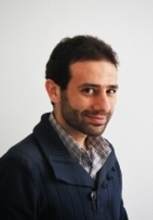 |
Assem Dandashly is an Assistant Professor at the Department of Political Science at Maastricht University. Prior to that, Assem was a Research Fellow at the Kolleg-Forschergruppe “The Transformative Power of Europe” Freie Universität Berlin. Assem holds a PhD in Political Science (2012) from the University of Victoria, BC Canada. Prior to moving to Berlin, Assem was a Research Associate at the Centre for Competition policy at the University of East Anglia. He was also a research assistant and sessional instructor at the University of |
Victoria. In 2008-2009, Assem was a visiting researcher at the Economic University of Krakow in Poland and the Central European University in Budapest. Before moving to Victoria, Assem was a Fulbright Graduate Student at Marquette University, Wisconsin-USA.
While visiting the University of Victoria in the summer of 2015, Assen taught POLI 379 "Issues in European politics: EU and the World".
Dr. Concepción García-Iglesias Soto - Summer 2015
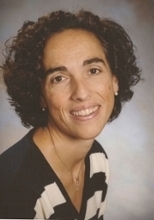 |
Concepción García-Iglesias Soto is a Senior Researcher in Economic History at the University of Helsinki Network for European Studies, Finland. She received her Ph.D. in Economics from the University of Illinois at Urbana-Champaign, USA (1998) where she was working under the supervision of Professor Larry Neal. Prior to that, she was a Bank of Spain fellow for research in Economic History. From 1998 to 2000, she was a recipient of a European Commission Marie Curie Training Research Grant at the European |
University Institute in Florence, Italy. In 2000-2002, she was Visiting Professor at Pompeu Fabra University in Barcelona. Afterwards, she moved to Finland where she has been since. In 2009, she was appointed Docent (Adjunct Professor) in the Department of Social Science History at the University of Helsinki. She was also adjunct faculty member at the Helsinki School of Economics within the International MBA Program.
While at the University of Victoria in the summer of 2015, she taught ECON 422 "Issues in European economic integration".
Patrycja Rozbicka - 2014
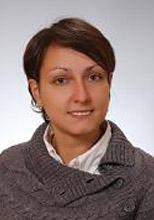 |
Patrycja Rozbicka is a post-doc at the Ruhr University Bochum, primary involved with the INTEREURO Project. Before that , she was a Ph.D. researcher in the Department of Social and Political Science at the European University Institute in Florence, Italy. The main areas of interest and publications: participation of interest groups in the EU political system and policy-making, the EU environmental policy, and coalitions and networks studies. |
